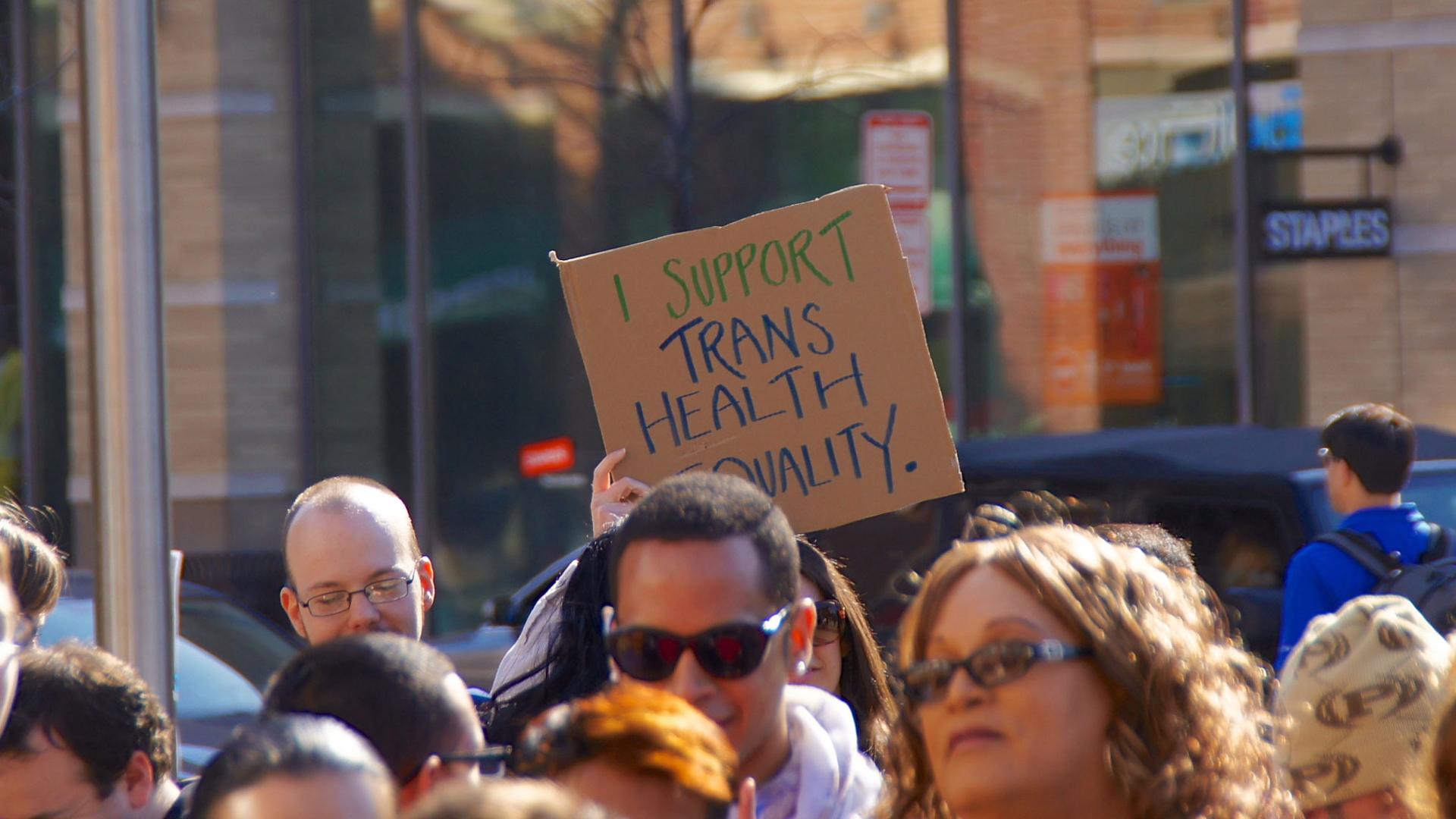For transgender community, it can be a struggle to access the ‘ordinary’ things
A sign at rally in Washington, DC in 2013.
Transgender women face a number of day-to-day obstacles simply navigating the world. I know, because I’ve been there myself.
The last time I was asked about common barriers for us, I had to take a breath and think. The truth is, just being accepted for who you are is a barrier. It may shift, depending on your location, your economic status, your ability to ‘pass’ or your social circles — but each time you step outside your familiar world, there are dangers.
Violence against trans women in Philadelphia, as in most US cities, is unacceptably high.
Often the barriers are things most people take for granted. Are you accepted and safe at school, so you can complete your education? In a job interview, are you judged by your resume or your appearance? If you’re working or just out in the world, can you go to the restroom without fear of reprimand, or worse? Access to healthcare and insurance remains a big barrier. Even if you have access, do you have a provider that understands your health needs?

I’ve had the opportunity to work on the "official" side of things, as a volunteer member of the police LGBT liaison committee in Philadelphia, and in my job as an outreach worker with the Trans Wellness Project at Mazzoni Center.
It’s highly personal work. I'm part educator, part counselor, part go-between. It’s about reaching the women who aren’t easy to reach and talking to them about their health and other concerns.
Before I can educate someone, I have to establish trust. That’s why having a peer outreach team is so important. So many trans women are used to having a cisgender woman try to talk to them about their needs and challenges. When they’re talking with a peer, they tend to let their guard down and be more receptive.
My job is about meeting trans women where they are, literally and figuratively. It means traveling all over the city, doing outreach work on the street, in cars, at hotels — where we know women are engaged in sex work, a reality for many trans women thanks to a cycle of discrimination, stigma, and lack of employment opportunities.
We’re not judging women or telling them what they should and shouldn’t do. We’re there to offer information, resources and options.
So much depends on the initial conversation, and how open the woman is to talking with me. I ask questions such as, "Are you taking hormones? Are they street hormones?" If that’s the case, we can connect them to a provider who understands their situation. We can work on getting them a prescription even if they're uninsured.
A lot of times I won’t get an immediate response. But when someone calls me up later — it could be two days later, or two weeks — and say, "Remember me? You met me out on Old York Road? I was thinking about what you said. I want to know more," that's a success.
We want to hear your feedback so we can keep improving our website, theworld.org. Please fill out this quick survey and let us know your thoughts (your answers will be anonymous). Thanks for your time!
